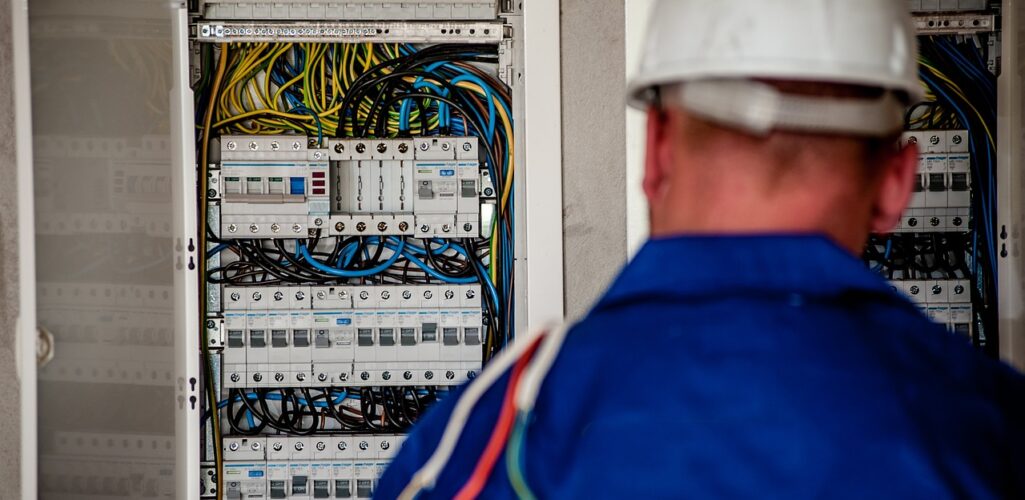Electrical contractors play a vital role in keeping homes, businesses, and industries powered and safe. However, their work involves unique risks, including electrical hazards, property damage, and liability concerns.
To safeguard their business, employees, and clients, electrical contractors need comprehensive insurance coverage. In this blog, we’ll explore the types of insurance every electrical contractor should consider, with a focus on Arkansas-specific requirements and tips for securing the best policies.

Why Insurance Matters for Electrical Contractors
Operating as an electrical contractor comes with inherent risks—from on-the-job injuries to accidental property damage. Having the right insurance coverage provides protection against financial losses, ensures compliance with legal requirements, and fosters trust with clients. Proper insurance also demonstrates professionalism and can be a key factor in securing large contracts.
In this guide, we will outline the essential types of insurance for electrical contractors, discuss Arkansas-specific requirements, and provide tips for finding the best coverage.
Types of Insurance Electrical Contractors Need
General Liability Insurance
Why It’s Important: General liability insurance protects against third-party claims for bodily injury, property damage, or accidents. This coverage is a cornerstone for any electrical contracting business, ensuring that unforeseen incidents don’t derail operations.
Example Scenarios:
- A client slips and falls at your job site, leading to medical expenses.
- Accidental damage to a customer’s property while installing electrical systems.
Workers’ Compensation Insurance
Why It’s Important: This insurance covers employees’ medical expenses and lost wages in case of work-related injuries or illnesses. It’s not only essential for protecting employees but also a legal requirement in many states.
Arkansas Specifics: In Arkansas, businesses with three or more employees are required to have workers’ compensation insurance. This ensures that electricians and other workers are covered in the event of an on-the-job injury.
Professional Liability Insurance
Why It’s Important: Professional liability insurance, also known as errors and omissions insurance, covers claims of negligence, errors, or omissions in the services provided. This is particularly relevant for contractors who offer consulting, design, or project management services.
Example Scenarios:
- A client alleges that an improper electrical design caused delays in a construction project.
- Errors in a wiring plan lead to additional costs and client dissatisfaction.
Tools and Equipment Insurance
Why It’s Important: Electrical contractors rely on specialized tools and equipment, often worth thousands of dollars. Tools and equipment insurance protects these assets from theft, damage, or loss.
Example Scenarios:
- Theft of expensive tools from a worksite or vehicle.
- Damage to essential equipment due to accidental drops or weather events.
Commercial Auto Insurance
Why It’s Important: Electrical contractors frequently travel between job sites, making commercial auto insurance essential. This policy covers vehicles used for business purposes, including liability, collision, and comprehensive coverage.
Example Scenarios:
- An accident involving a company vehicle on the way to a job site.
- Theft or vandalism of a work truck used to transport tools and materials.
Bonding Insurance
Why It’s Important: Bonding insurance assures clients that the contractor will fulfill contractual obligations. It’s often a prerequisite for securing larger projects or public contracts.
Example Scenarios:
- A performance bond guarantees project completion as per the contract.
- A payment bond ensures subcontractors and suppliers are compensated.
State-Specific Insurance Requirements for Arkansas
Arkansas has specific regulations for electrical contractors, including licensing and insurance requirements. Here’s what contractors in the state need to know:
- Workers’ Compensation: Required for businesses with three or more employees. More details can be found on the Arkansas Division of Workforce Services website.
- Licensing Requirements: Electrical contractors must meet state and municipal licensing standards, which often include proof of general liability insurance.
- Bonding Requirements: Many Arkansas municipalities require contractors to be bonded, especially when bidding on public projects.
- General Liability Insurance: Often required to secure larger contracts, demonstrating financial responsibility and professionalism.
How Much Does Insurance for Electrical Contractors Cost?
The cost of insurance for electrical contractors varies based on several factors:
- Type of Coverage: General liability, workers’ compensation, and commercial auto insurance each have different cost structures.
- Business Size: Larger businesses with more employees and vehicles typically pay higher premiums.
- Risk Exposure: Contractors working on high-risk projects, such as industrial facilities, may face higher costs.
- Location: Costs can vary by state, with Arkansas rates influenced by regional risk factors and industry standards.
Typical Costs:
- General liability insurance: $500–$1,500 annually.
- Workers’ compensation: Costs depend on payroll size and risk classification.
- Tools and equipment insurance: $300–$700 annually.
How to Get Insurance as an Electrical Contractor
Follow these steps to secure the right coverage for your business:
- Assess Your Needs: Evaluate the types of coverage required based on your business size, services, and state regulations.
- Choose a Reputable Broker: Work with an experienced broker like G&G Independent Insurance to find tailored policies.
- Compare Policies: Obtain multiple quotes to ensure competitive pricing and comprehensive coverage.
- Review Coverage Annually: As your business grows or changes, adjust your coverage to match evolving needs.
Conclusion
Protecting your electrical contracting business with the right insurance is essential to mitigate risks, comply with legal requirements, and build trust with clients. From general liability to tools and equipment coverage, each policy plays a crucial role in safeguarding your operations.
If you’re ready to secure your business, contact G&G Independent Insurance for a free quote and expert guidance on Arkansas contractor insurance requirements. Ensure you have the protection you need to focus on what you do best—powering the community!


